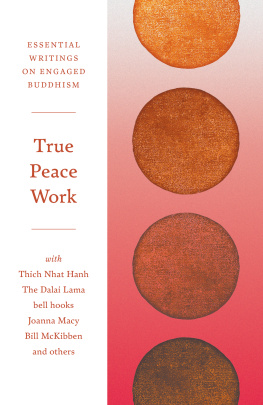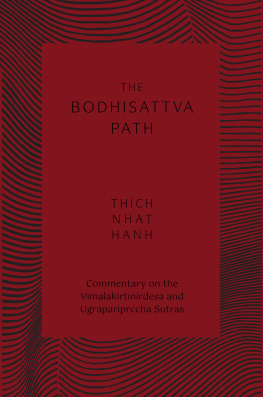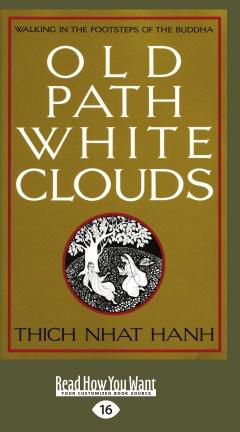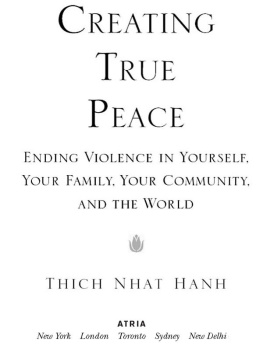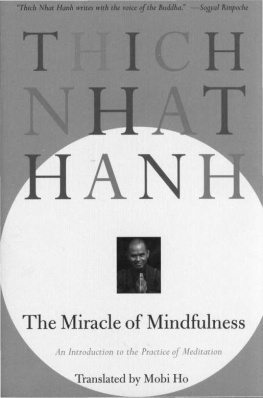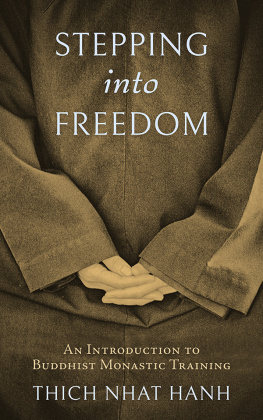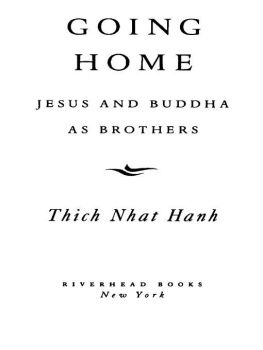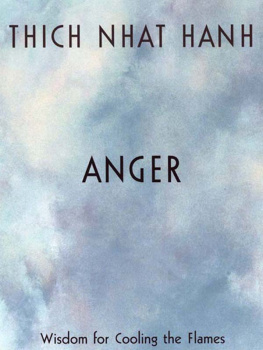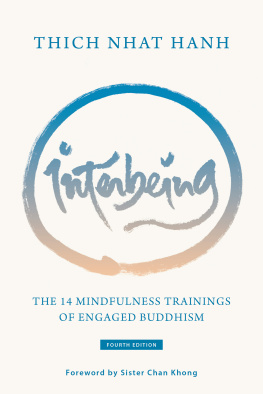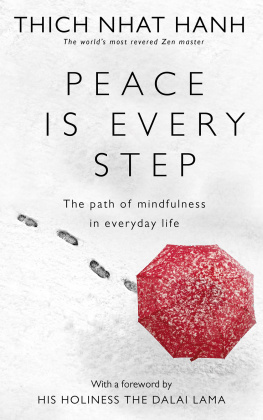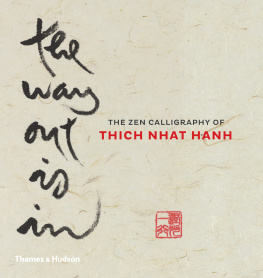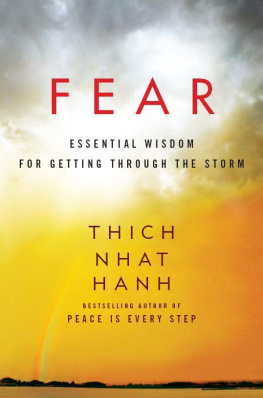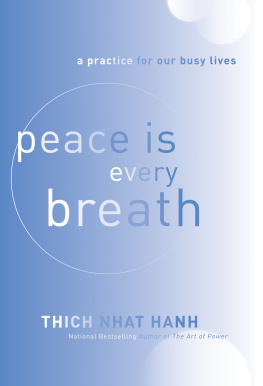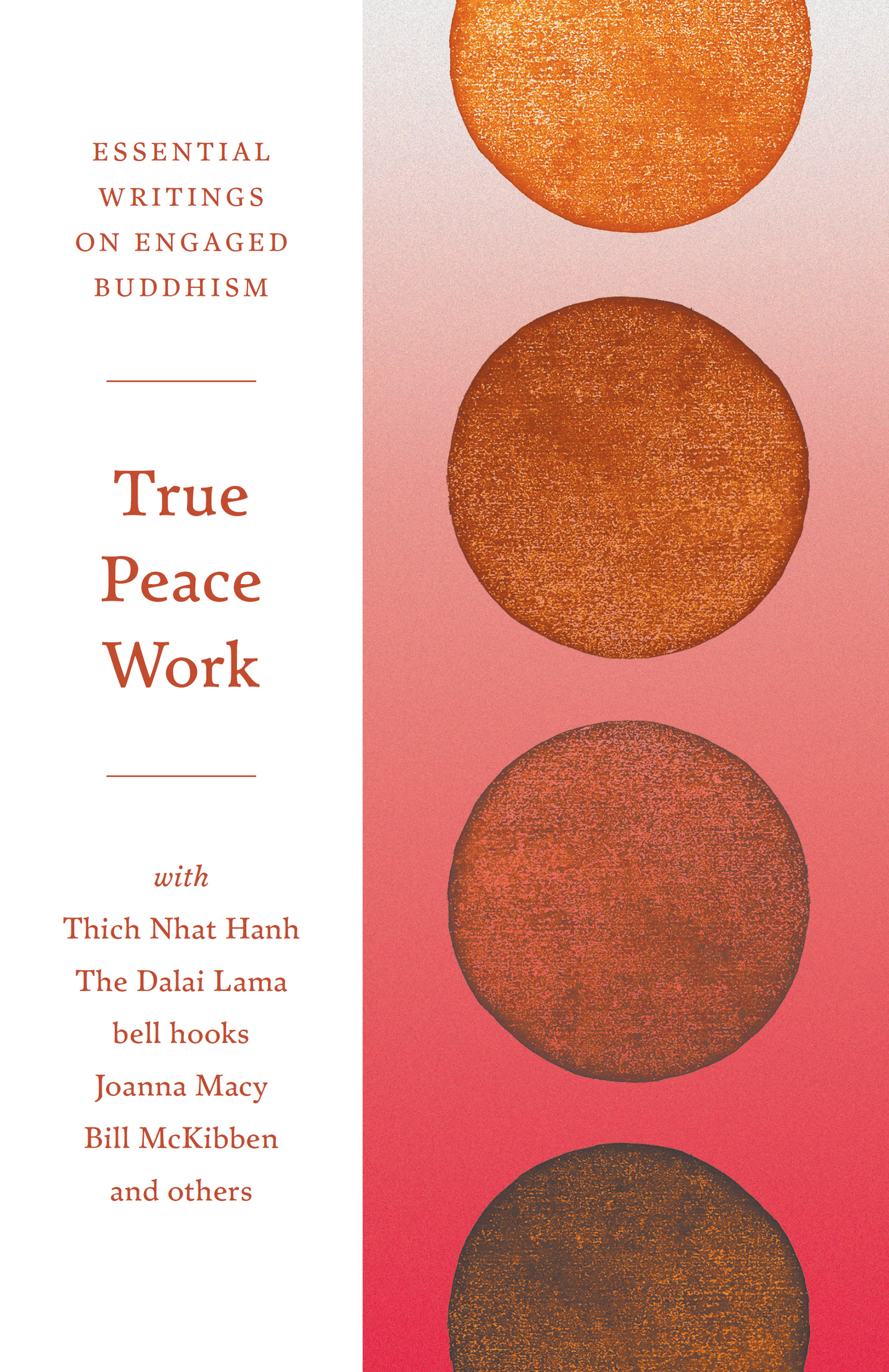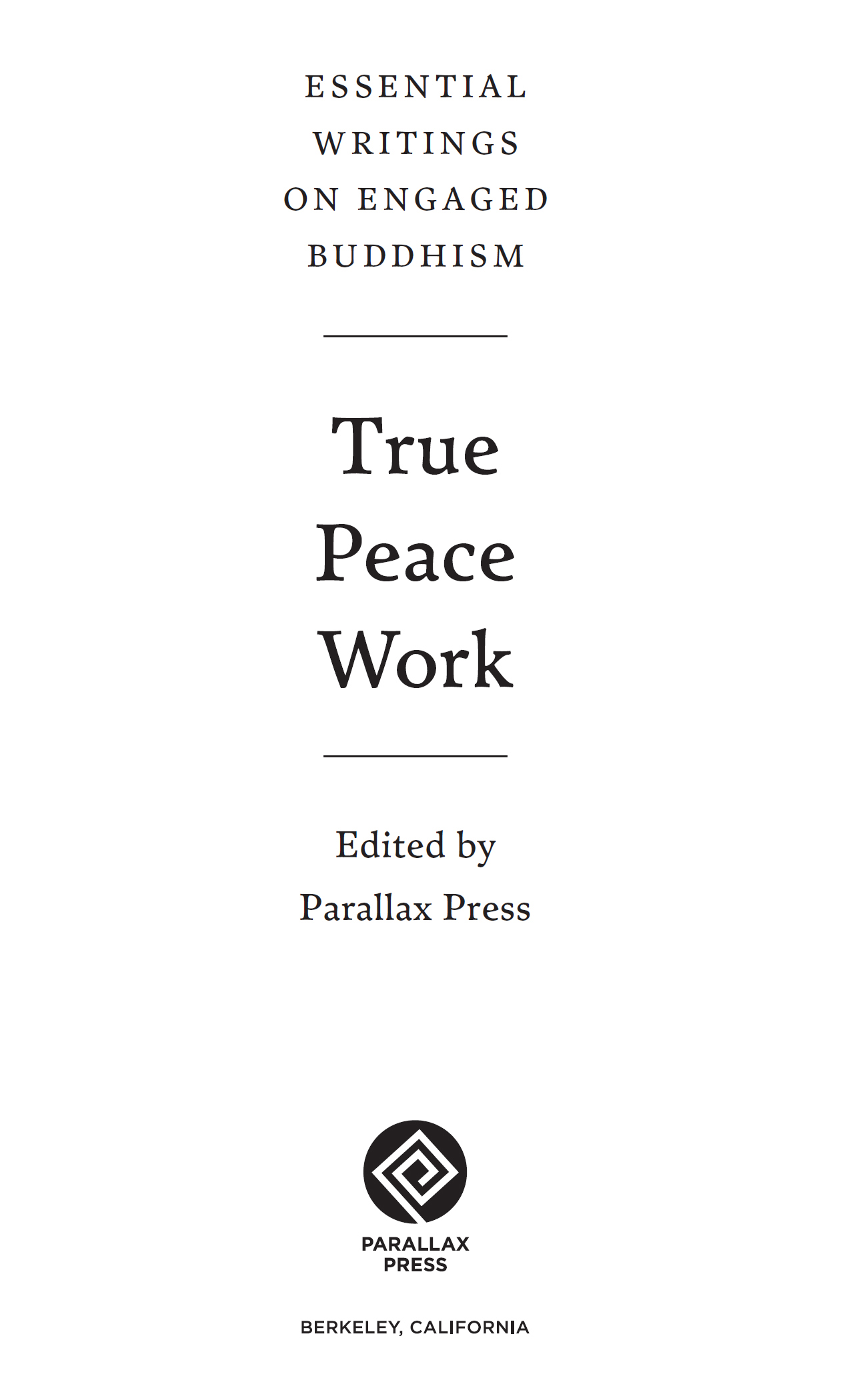P.O. Box 7355
Community of Engaged Buddhism, Inc.
Toward a Worldwide Culture of Love by bell hooks, I Vow Not to Burn Out by Mushim Patricia Ikeda, and Be Peace Embodied by Charles Johnson reprinted courtesy of Lions Roar.
Library of Congress Cataloging-in-Publication Data is available upon request.
True peace is always possible. Yet it requires strength and practice, particularly in times of great difficulty. To some, peace and nonviolence are synonymous with passivity and weakness. In truth, practicing peace and nonviolence is far from passive. To practice peace, to make peace alive in us, is to actively cultivate understanding, love, and compassion, even in the face of misperception and conflict. Practicing peace, especially in times of war, requires courage.
CONTENTS
Suffering Is Not Enough
Thich Nhat Hanh
Cultivating Altruism
The Dalai Lama
Letting Go of Suffering
Maha Ghosananda
Spiritual Practice and Social Action
Jack Kornfield
Enoughness
Bill McKibben
Life Is a Miracle
Thich Nhat Hanh
The Dragon Who Never Sleeps
Robert Aitken
Walking Meditation
Thich Nhat Hanh
In the Moments of Non-Awakening
Larry Yang
The Good News
Thich Nhat Hanh
Love in Action
Thich Nhat Hanh
Engaged Buddhism
Kenneth Kraft
Buddhism in a World of Change
Sulak Sivaraksa
Nagarjunas Guidelines for Buddhist Social Action
Robert A. F. Thurman
Please Call Me by My True Names
Thich Nhat Hanh
Be Peace Embodied
Charles Johnson
Days and Months
Sister Chan Khong
Buddhism and the Possibilities of a Planetary Culture
Gary Snyder
Genuine Compassion
The Dalai Lama
The Bells of Mindfulness
Thich Nhat Hanh
Reflections on the Fire Sermon
Bhikkhu Bodhi
Watering the Seed of Mindfulness
Peter Matthiessen
The Sun My Heart
Thich Nhat Hanh
Reflections on the Paris Climate Conference
Brother Phap Dung
The Greening of the Self
Joanna Macy
Community as a Resource
Thich Nhat Hanh
I Vow Not to Burn Out
Mushim Patricia Ikeda
The Six Principles of Harmony
Sister Annabel Laity
Where the Heart Lives
Zenju Earthlyn Manuel
Precious Jewel
Sister Jina van Hengel
Mindfulness and the Police
Cheri Maples
Why We Need a Global Ethic
Thich Nhat Hanh
Hope at the Edge
Roshi Joan Halifax
Toward a Worldwide Culture of Love
bell hooks
Wisdom and Compassion at the Service of Others
Matthieu Ricard
Hope for the Future
The Dalai Lama
Collective Awakening and the Five Mindfulness Trainings
Thich Nhat Hanh
INTRODUCTION TO THE SECOND EDITION
True Peace Work is a revised edition of Engaged Buddhist Reader, originally published in 1996 and edited by Arnold Kotler, then publisher of Parallax Press. The Reader was a celebration of ten years of publishing at Parallax Press, which was founded in 1986 with Vietnamese Zen teacher Thich Nhat Hanhs Being Peace. Each piece in the Reader was collected from books published by Parallax in that ten-year span, and the book included authors such as His Holiness the Dalai Lama, Robert Thurman, Peter Matthiessen, and Gary Snyder.
With True Peace Work, we have tried to remain true to the first edition, and have kept many of the essays in their original form. Of course, in publishing the second edition twenty-three years after the first, some updates have been needed, and we have taken the opportunity to include additional contributors as well. There are eleven new contributors to this edition: bell hooks, Bhikkhu Bodhi, Bill McKibben, Charles Johnson, Cheri Maples, Joan Halifax, Larry Yang, Matthieu Ricard, Mushim Patricia Ikeda, Brother Phap Dung, and Zenju Earthlyn Manuel. A sincere thank you to each of these profound teachers and thinkers for allowing their work to be included in this collection.
The term Engaged Buddhism was first used by Thich Nhat Hanh when he was talking about the response of Buddhist monks, nuns, and lay practitioners to the suffering of war in the 1960s. He writes: What was going on around us was the suffering of many people and the destruction of life. So we were motivated by the desire to do something to relieve the suffering in us and around us. Thich Nhat Hanh and his disciples went out of the temple to help the wounded, and while they helped, they practiced mindful walking and mindful breathing.
Buddhism in its essence is Engaged Buddhism. Buddhisms Noble Eightfold Path is a path of right action and right livelihood. Wherever the Noble Eightfold Path is practiced, Engaged Buddhism is also practiced. The pieces collected here reflect the practice of the Noble Eightfold Path, which Thich Nhat Hanh talks about as the Buddhist contribution to a global ethic, something very practical which does not belong to the rituals of religion. Although readers will learn some of the history of Engaged Buddhism by reading this collection, it is not primarily historical or informational. This is a teaching collection, with insights and practices from some of the most widely respected spiritual leaders of our time.
Parallax Press Editors
Berkeley, California
January 2019
THICH NHAT HANH
Suffering Is Not Enough
1986
L IFE IS FILLED with suffering, but it is also filled with many wonders, like the blue sky, the sunshine, the eyes of a baby. To suffer is not enough. We must also be in touch with the wonders of life. They are within us and all around us, everywhere, any time.

